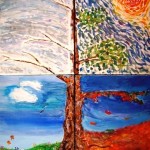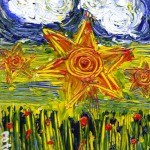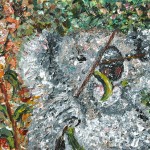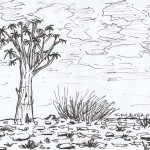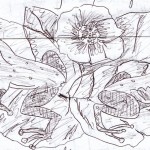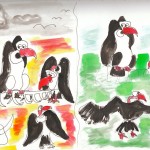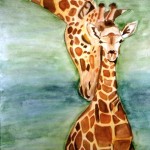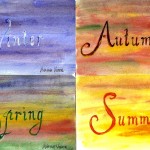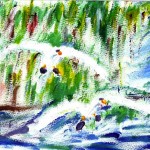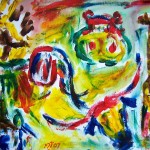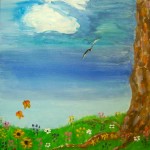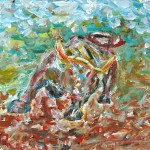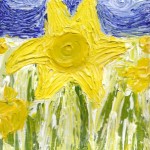Productivity Through Interdependence:
Heeding the Lessons of Nature
Article by Wayne Visser
In our modern economies and businesses, unlimited growth is constantly striven for, institutionalised, almost idolised. We hold it up as the measure of success. Yet, by doing this, we could be sowing the seeds of our own destruction. We know this because in nature, unlimited physical growth is almost nowhere to be seen.
When it does occur, we call it cancer, or imminent species collapse, or ecosystem decline. Also, we are already seeing many of the signs of exceeding what environmental scientist Donella Meadows called ‘the limits to growth’.
Growth in Nature
In his visionary book on the evolution of life (The Awakening Earth), scientist and business author Peter Russell makes the critical observation that, while exponential growth does frequently occur in nature, it always levels off into an S-shaped curve as soon as a harmonious and life-supporting situation has been reached. What actually happens is that quantitative growth is always superseded by qualitative growth after a healthy infrastructure has been established. Our own human growth patterns are testimony to this. US ecological economist Herman Daly extends this principle to the economy, suggesting that a distinction needs to be made between traditional economic growth (typically measured by Gross National Product), and holistic development.
According to Daly, ‘growth’ means a quantitative increase in the scale of the physical dimensions of the economy, while ‘development’ means the qualitative improvement in the structure, design and composition of the physical stocks of wealth that results from greater knowledge, both of technique and of purpose.
A growing economy is getting bigger; a developing economy is getting better. In a business context, impetus for this change has already been provided by MIT Professor Peter Senge’s concept of a ‘learning organisation’ and World Business Academy fellows Willis Harman and John Hormann’s notion of Creative Work, in which “employment exists primarily for self development, and is only secondarily concerned with the production of goods and services.”
Practically, this shift away from blind growth will only occur as companies begin to value, measure and integrate qualitative dimensions into their strategic planning, operations and public reporting processes. Two excellent tools for achieving this are the Balanced Scorecard and Social Auditing.
Productivity in Nature
Another common misconception about Nature is the dominance of competition in its processes – the so-called ‘survival of the fittest’ adage. In fact, in nature, competition is the exception and cooperation and symbiotic relationships are the rule. The principle incorrectly ascribed to Darwin could more appropriately read ‘survival of the species best adapted or integrated within their dynamic environment’. Size, strength or physical agility are seldom the best survival qualities (remember the dinosaurs?).
Among the unsung prophets of the 20th century who first described the dynamic complexity of Nature in these terms was former South African Prime Minister, Jan Smuts. His Theory of Holism was the precursor to modern day Living Systems Theory, which Fritjof Capra has subsequently applied to the economy and Peter Senge has applied to business organisations. According to their observations, the key to productivity is synergy – creating the cooperative relationships which …
Continue reading
[button size=”small” color=”blue” style=”download” new_window=”false” link=”http://www.waynevisser.com/wp-content/uploads/2012/07/article_lessons_nature_wvisser.pdf”]Pdf[/button] Productivity Through Interdependence (article)
Related websites
[button size=”small” color=”blue” style=”tick” new_window=”false” link=”http://www.csrinternational.org”]Link[/button] CSR International (website)
[button size=”small” color=”blue” style=”info” new_window=”false” link=”http://www.waynevisser.com/books/business-frontiers”]Page[/button] Business Frontiers (book)
Cite this article
Visser, W. (1998) Productivity through Interdependence: Heeding the Lessons of Nature. Earthyear, Edition 17, June.
Share this page
 This creative collection, now in its 3rd edition, brings together nature poems by Wayne Visser, celebrating the diversity, beauty and ever-changing moods of our planet. The anthology includes many old favourites like “I Think I Was a Tree Once” and “A Bug’s Life”, as well as brand new poems like “Monet’s Dream” and “The Environmentalist”. Then as we turned our faces to the moon / Our hands entwined, our hearts in sync, in tune / We felt the fingers of the silken breeze / And made our wishes on the falling leaves / A gust of wind set off a whispered sigh / Among the trees that leaned against the sky. Buy the paper book / Buy the e-book.
This creative collection, now in its 3rd edition, brings together nature poems by Wayne Visser, celebrating the diversity, beauty and ever-changing moods of our planet. The anthology includes many old favourites like “I Think I Was a Tree Once” and “A Bug’s Life”, as well as brand new poems like “Monet’s Dream” and “The Environmentalist”. Then as we turned our faces to the moon / Our hands entwined, our hearts in sync, in tune / We felt the fingers of the silken breeze / And made our wishes on the falling leaves / A gust of wind set off a whispered sigh / Among the trees that leaned against the sky. Buy the paper book / Buy the e-book.

 This creative collection, now in its 3rd edition, brings together nature poems by Wayne Visser, celebrating the diversity, beauty and ever-changing moods of our planet. The anthology includes many old favourites like “I Think I Was a Tree Once” and “A Bug’s Life”, as well as brand new poems like “Monet’s Dream” and “The Environmentalist”. Then as we turned our faces to the moon / Our hands entwined, our hearts in sync, in tune / We felt the fingers of the silken breeze / And made our wishes on the falling leaves / A gust of wind set off a whispered sigh / Among the trees that leaned against the sky.
This creative collection, now in its 3rd edition, brings together nature poems by Wayne Visser, celebrating the diversity, beauty and ever-changing moods of our planet. The anthology includes many old favourites like “I Think I Was a Tree Once” and “A Bug’s Life”, as well as brand new poems like “Monet’s Dream” and “The Environmentalist”. Then as we turned our faces to the moon / Our hands entwined, our hearts in sync, in tune / We felt the fingers of the silken breeze / And made our wishes on the falling leaves / A gust of wind set off a whispered sigh / Among the trees that leaned against the sky. 
